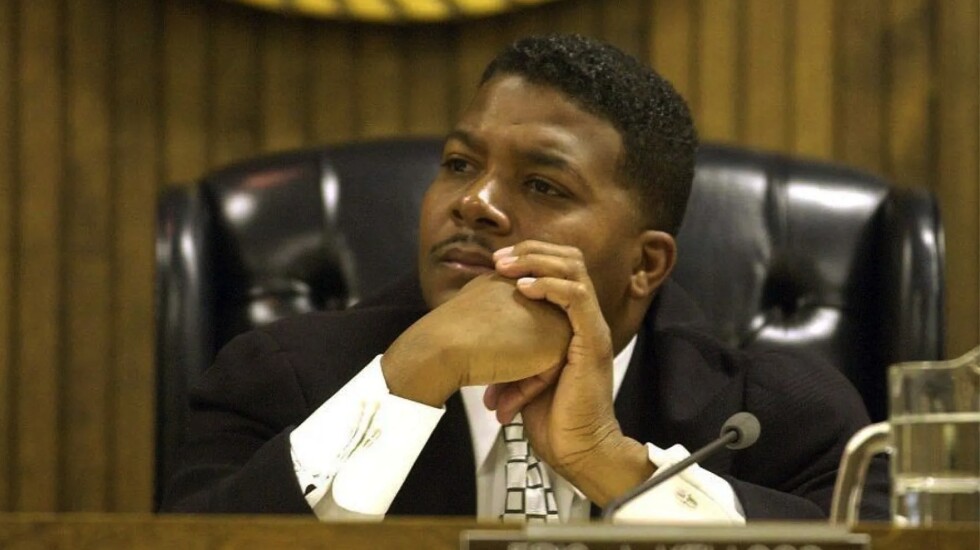
The brother of former Harvey Mayor Eric Kellogg says he was set up on extortion charges in 2019 after federal investigations failed to result in charges against the politician.
Rommell Kellogg and his cousin Corey Johnson say they plan to use entrapment defenses in their trial, which is scheduled for April 3.
In court filings, they say a government informant pressured them to participate in a bribery scheme, that Eric Kellogg was the FBI’s main target and that, in one investigation, an FBI agent, posing as the manager of a strip club, supported Kellogg’s 2007 reelection.
“This targeted prosecution failed, though not for a lack of the government trying,” Rommell Kellogg’s lawyer Ronald Clark wrote in a Jan. 22 court filing. “The government still wants Eric Kellogg, but it has not been able to indict him.”
According to a criminal complaint filed by prosecutors, Rommell Kellogg and Johnson collected bribes arranged by a person a criminal complaint identified as “Individual A” and “the mayor of the city of Harvey.”
Beginning in 2003, Individual A demanded $3,000 in bribes from the now-closed Arnie’s Idle Hour strip club to allow prostitution in the club’s VIP room and keep the city from shutting it down, the complaint said. The bribes were raised to $6,000 a month from 2008 through 2018, according to the complaint.
Sources told the Chicago Sun-Times that Individual A is Eric Kellogg.
Eric Kellogg could not be reached for comment.
According to Rommell Kellogg, he and Johnson are collateral damage in the federal government’s years-long efforts targeting Eric Kellogg, whose four-term tenure as mayor of the troubled south suburb ended in 2019 because of a term limit.
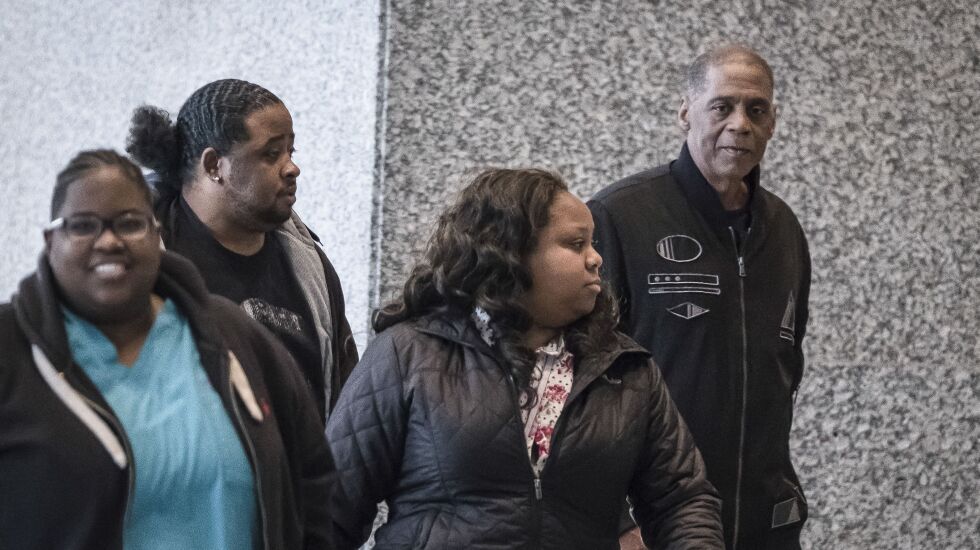
In his court filing, Rommell Kellogg pointed to extraordinary elements of the FBI investigation of his brother, including federal authorities creating a political action committee to support Eric Kellogg’s 2007 reelection.
According to the filing, a strip club in Harvey played a central part in that investigation.
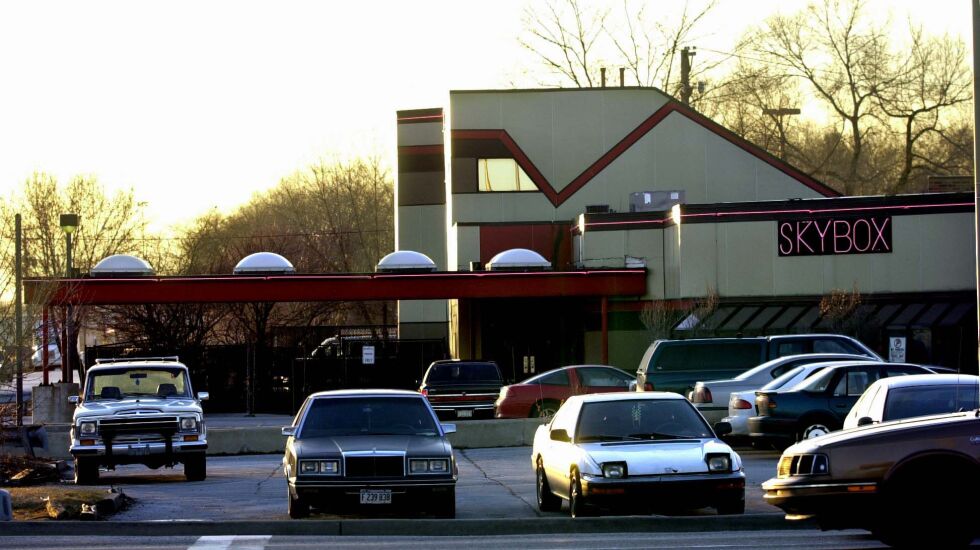
Starting in 2007, an undercover FBI agent posed as the manager of the now-closed Skybox strip club “to meet and greet as many people as possible” and “root out any corruption in the area,” according to court records in the case.
The agent, who drove a Mercedes and a Cadillac, used his Skybox persona to form relationships with cops who later were charged with corruption. He oversaw the club’s remodeling and pretended to have a sideline business facilitating drug deals.
Eric Kellogg was a target of that investigation, court records show, but he wasn’t charged.
According to state election records, the FBI agent, who used the alias Carlos Vargas, formed a political action committee called The Harvey Good Government Group 2007, lending it $143,300. The stated purpose of the committee was “to elect qualified candidates to public office in South Cook County.”
Flyers for Kellogg’s reelection campaign were paid for by The Harvey Good Government Group 2007, according to the Chicago Tribune, which first reported on the committee in 2014.
That FBI investigation led to charges in 2008 against 10 Cook County corrections officers and sheriff’s deputies, four Harvey police officers and a Chicago cop. They were accused of providing protection for what they thought were shipments of cocaine and heroin. One officer was acquitted. The rest were convicted. Most got prison sentences. One got probation.
Responding to Rommell Kellogg’s recent court filing, federal prosecutors say in court papers that he wasn’t entrapped and that they opposed allowing him to introduce as evidence at his trial any mentions of the FBI’s past investigations of Eric Kellogg.
“The government’s investigative tactics in another investigation have no relevance whatsoever to any of the elements the government must prove” against Rommell Kellogg, prosecutors wrote. “Defendant’s conspiracy theories about the government’s motives in charging him, rather than his brother, likewise have no relevance.”
In a Feb. 10 filing, Johnson asked a judge to disqualify Assistant U.S. Attorney Sean Franzblau from being a prosecutor at his trial. Johnson said Franzblau interrogated him for 38 minutes before he was charged and tried to frighten him by saying, “The fact is, as things stand right now, I have the evidence and the charges to put you in prison for the rest of your life.”
Johnson said Franzblau shouldn’t be allowed to prosecute him he might call Franzblau as a witness. The prosecution team is expected to respond to Johnson’s request next month.
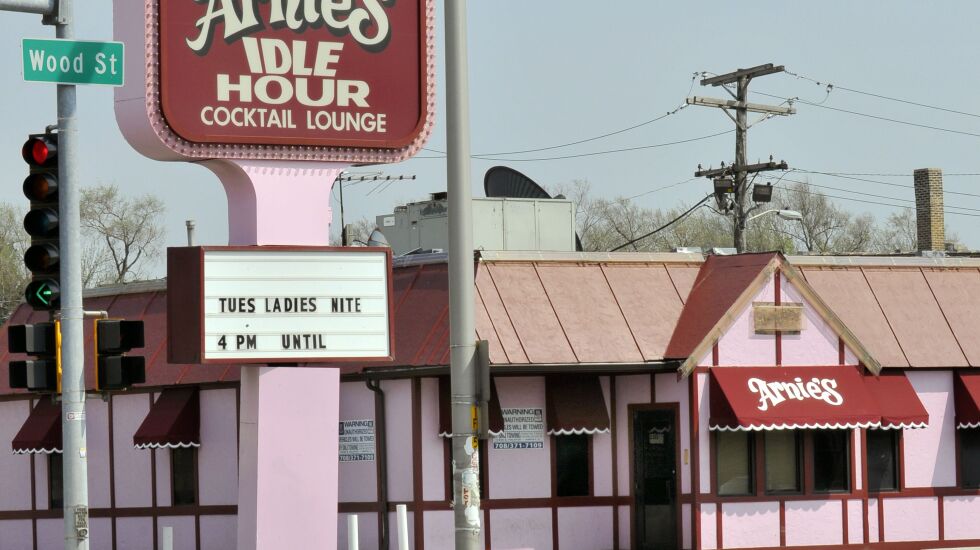
Johnson says he also plans to use an entrapment defense at trial.
Johnson, who worked for a pizzeria whose owner also owned Arnie’s Idle Hour, says he resisted passing bribes from the club to Rommell Kellogg. He says he told the federal informant who managed Arnie’s that the club should eliminate prostitution.
But the informant persuaded Johnson that he needed to pass along the bribes — which they code-named “pizza” — to keep the city from closing the club, according to the filing made by Johnson’s lawyer Gal Pissetzky.
“Mr. Johnson lacked any predisposition to commit the alleged charged crimes and the evidence shows the FBI agents induced Mr. Johnson to assist [the informant] in his dealings with Mr. [Rommell] Kellogg,” the filing said.
Alicia Arnold, who operated Arnie’s, has pleaded guilty to tax evasion and is scheduled to be sentenced April 4.
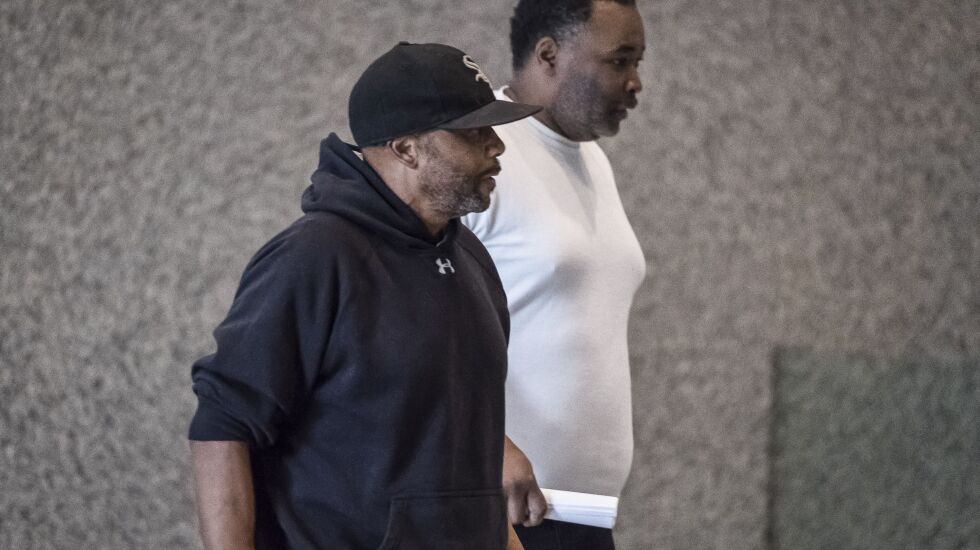
Another Kellogg family member has been charged and is awaiting trial in a separate federal corruption case. Derrick Muhammad, a former Harvey police supervisor and brother of Eric Kellogg, was charged last year with using his badge to steer vehicle-towing jobs in Harvey to private companies in exchange for bribes from 2011 to 2019.
Muhammad was sentenced to nine months in prison after being convicted in 2020 of using his police authority in Harvey to cover up a felon’s possession of a stolen Uzi submachine gun found in a towed vehicle.

For decades, Harvey, a city of 19,000 about 23 miles south of downtown Chicago, has suffered from high rates of violent crime, a lack of business development and political corruption.
Its current mayor, Christopher Clark, was elected in 2019. Clark, who pledged to improve public safety, reduced the hours of operation for liquor license-holders. He hired new officers and raised their starting pay, increased the police department’s budget and purchased more cars and equipment, according to a written statement from his office.
As in Chicago and other cities across the country, the number of killings rose in Harvey during the COVID-19 pandemic. There were 19 in 2020 and 31 in 2021. Last year, the number of homicides fell in Harvey, as they did in Chicago and elsewhere. There were 15 homicides in Harvey in 2022 and none so far this year, according to the Cook County medical examiner’s office.
Clark attributed the drop in violent crime to his public-safety measures and “the hard work of our officers.”







